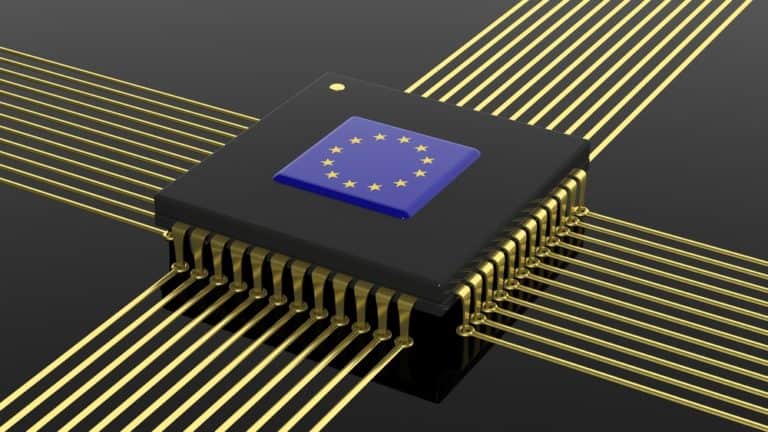The Italian Prime Minister called for investments at both the national level and from abroad.
On Wednesday, Italy’s Prime Minister Mario Draghi gave an address to the Italian Senate, where he said it was a priority for European countries to increase production of computer chips as part of a wider effort aimed at strengthening the bloc’s economy and protecting key industries.
He added that it was Europe’s ambition to increase its market share from 10% to 20% of global chip production by 2030.
“Strengthening the European economy also means protecting strategic industrial areas, which need to be supported with adequate investments in innovation and scientific and technological research,” Draghi said. “One priority is to increase the production of microchips in Europe.”
Draghi then quoted a recent study by the International Monetary Fund that estimated that, last year, value chain bottlenecks cost the euro area approximately 2% of its gross domestic product.
Tip: Increasing chip production in Europe sounds like a common sense approach. That may not be that easy to realize as you might think. Read up on this issue here.
Promoting the Chips Act
“The shortage of semiconductors, which are essential for many strategic industries such as vehicles, industrial machinery and defence, was particularly damaging,” he said. “The European Union’s ambition is to increase its market share of global chip production from 10 to 20 per cent by 2030. This increase would allow us to ensure secure supplies in the event of any import delays.”
He then called the European Commission’s Chips Act “an important step forward towards meeting these objectives.”
“We intend to increase investments in research, and to develop and strengthen a vertically integrated production capacity that ensures effective autonomy in the production and packaging of microchips,” Draghi added. “We must speed up completion of the second Important Project of Common European Interest in the field of microelectronics.”
Earlier this month, the Italian Government approved creation of a fund worth over EUR 4 billion to develop industry and research in the fields of semiconductors and innovative technologies. “We must also remain open to investments from abroad,” Draghi cautioned. “Although there must be a coordinated approach among Member States and regulations that favour positive effects for the European industry as a whole.”
